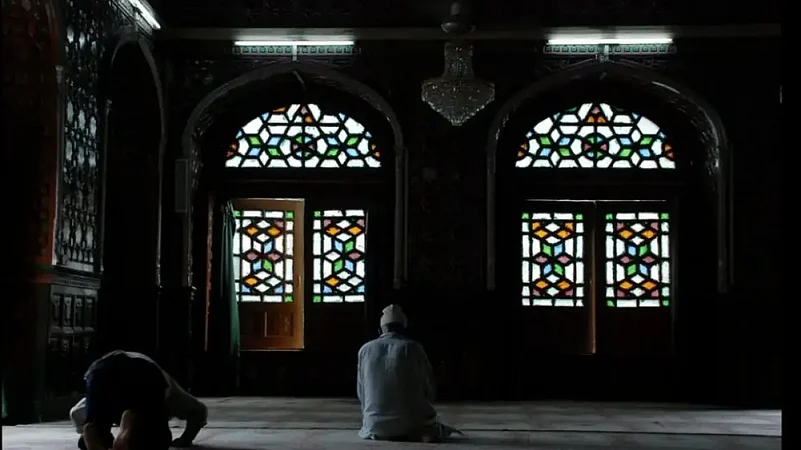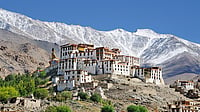Democratic politics has always faced serious challenges in the conflict-ridden Kashmir Valley, not only in the last three decades of militancy and separatism but even prior to that. In fact, the long term roots of separatism and militancy have been traced to the distortions in democratic political space since the early 1950s. While questions have been raised about the legitimacy of the electoral process, there have been issues related to the manipulations, intrusions from above and arbitrary dismissals of governments. All this seemed to have changed during the 2002 elections. With the PDP emerging as another Kashmir-based regional party and challenging the hegemony of the National Conference, electoral politics became highly competitive. For the first time in the history of Kashmir’s politics, electoral politics acquired legitimacy. The democratic politics thereafter started thriving with not only the NC and PDP in the field but also the Congress and the People’s Conference (PC). Each election after 2002 - be it the 2008 Assembly election or the 2011 Panchayat election, or the 2014 Assembly election - became quite participatory. The trust of Kashmiris in electoral politics was so enhanced that despite the overall situation of separatism, they gave credence to the ‘politics of governance’. Though there were occasions when there was a massive assertion of separatism (as in 2008 and 2010), and yet the democratic political space did not cave in. By the 2014 Assembly election, the democratic space had expanded significantly and gained sufficient depth.
This march of the gradually expanding democratic space was halted in August 2019 when the Government of India took the decision to revoke the special constitutional status of the state and to reorganise into two Union Territories.
Ostensibly meant to attack separatist politics, the August 2019 interventions actually derailed democratic politics. All political processes involving the mainstream parties were stalled as the entire active political class was incarcerated and massive restrictions were placed on the free expression of political opinion. Meanwhile, a political narrative was created in which the leaders of the mainstream parties were demonised and held responsible for all the problems of this erstwhile state - including separatism, corruption, lack of governance and lack of development. This resulted in a political vacuum in Kashmir - not only the absence of political parties in the public space but a total lack of political activity and complete political silence.
More than the detention of the political leaders, it was the withdrawal of the special constitutional status of the state that brought about an existential crisis among the traditional mainstream parties of Kashmir, including the National Conference (NC), People’s Democratic Party (PDP) and others. In the context of the larger reality of Kashmir’s politics with separatist tendencies, these parties had carved a space for mainstream politics by creating a distinction from separatist politics. This was done by claiming a political space defined by ‘pro-Accession’, ‘pro-Constitution’ and ’pro-Indian’ stances. While the separatists contested the Accession and made a demand for the right to self-determination, the mainstream parties defended the Accession and Constitution of India with Article 370 as its central point. With Article 370 read down after August 2019, the leaders of these parties were now in a quandary, not knowing where to base their politics and what to offer to the people.
The initial response of these parties, therefore, was to locate their politics in the demand for the pre-August status quo and the formation of the People’s Alliance for Gupkar Alliance (PAGD). The PAGD which comprised all the mainstream parties of Kashmir (NC, PDP, PC, CPM, ANC, JK People's Movement) committed itself to the protection and preservation of Article 370.
The formation of PAGD by the mainstream parties, however, threw another challenge to the mainstream parties - that of not falling into the trap of taking extreme positions and obviating the distinction between mainstream and separatist politics. Careful that these parties as part of the PAGD should not be seen to be resembling the Hurriyat Conference, they started adopting a pragmatic approach toward politics. Though initially, the leaders of these parties had taken the position that they will not participate in any political process unless their demand for restoration of the special status is met, they started rethinking these processes. The elections to the District Development Councils (DDCs) in late 2020 became an occasion for these parties to act in a more strategic manner.
The idea of creating the District Development Councils (DDC) as directly elected bodies, was the response of the Government of India in its efforts to recreate the base of democratic politics in Kashmir. As it envisioned the dismantling of the old politics of the ‘three dynastic families of Kashmir’ and creating a new political class, it sought to invest in the DDCs expecting the emergence of a fresh and younger district-based political elite to replace the old parties like the NC and PDP which, in the imagination of the national leadership, had become hackneyed and irrelevant. Already, there was an expectation from the newly floated Apni Party (known at that time to be a Centre-friendly party) that it will be able to play this role to some extent.
The DDC election presented the mainstream parties with their first major predicament. For these parties opposing the structural changes in J&K, participation in an election without any sign of protest would have amounted to the betrayal of their key constituency of Kashmiris and their key focus on Kashmiri identity politics. And yet at the same time, not participating would have amounted to these parties being pushed to the margins of politics of Kashmir all the time and would also have given a chance to the new entrants to occupy the political space. To overcome this quandary, these parties decided to participate in the election as one unit under the banner of PAGD. This proved to be a good move for these parties as the PAGD sweeping the Kashmir Valley was able to establish the political hold of traditional mainstream parties in the Valley. The continued relevance of these parties for the democratic politics of Kashmir was even acknowledged by the Government of India. In June 2021, the leaders of these parties were invited for a dialogue with the Prime Minister.
Even when the relevance of traditional mainstream politics could be established, the challenge for the mainstream parties continued in one form or the other. These parties have been constantly under pressure as there have been sustained efforts to weaken their organisational structure through the process of poaching. The effect of this process has been clearly visible on the PDP which has lost almost the whole of its top crust of leadership to other parties like the Apni Party and the People’s Conference. Even though NC has not faced the kind of crisis that PDP has faced, even so, it has lost a number of prominent leaders to other parties including the BJP.
It is the pragmatism of the mainstream parties that helped them survive various challenges. While seemingly staying together in the PAGD platform, these parties have been having a strategic approach towards it - using the platform at one point and asserting the autonomy of the party vis-a-vis this Alliance, at other points (While the PC came out of the PAGD, the NC has been having hot and cold response towards it as per the requirements of the time.) One can also see pragmatism on display when these parties keep the issue of Article 370 on the sideline while meeting the Prime Minister (conveniently putting it in the judicial box). Or, when the political leaders like Farooq and Omar Abdullah (and even Mehbooba Mufti) keep on asserting that they are not going to boycott the electoral process, whatever may be the provocation.
By being pragmatic, the mainstream parties have somehow succeeded in keeping themselves afloat in Kashmir. But what about the democratic space. What is its status? We can’t be so sure about the democratic space in Kashmir.
Democratic space, one can argue, is a different game. At the ground level, this space has been compromised by the ‘political silence’. For the last two and half years and Kashmiris have not expressed their political voice. There is neither an assertion of separatist politics nor an enthusiastic response to mainstream political processes. No protest politics is organised and no demand is made even for restoration of Article 370 or even for the restoration of the statehood. In the absence of enthusiasm for political processes of any kind, the meaning of this silence is difficult to decipher. It is true that separatist organisations have been crushed and yet, one cannot say that the separatist sentiment in Kashmir has been won over.
Will democratic politics thrive once again in Kashmir? One can’t say when and how. But one can say with surety that the democratic path is the only way that the trust of Kashmiris can be won. It will be only through their sense of participation and through the stakes they develop in democratic politics that the ultimate war over separatism can be won.






















